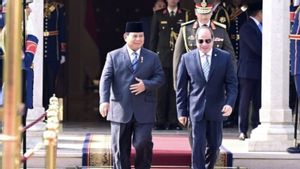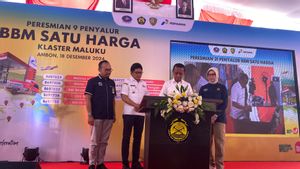JAKARTA - The distribution of specialist doctors must be spread evenly throughout the region. This means that the number of specialist doctors in this country must also continue to be increased.
Academician from the Faculty of Medicine, Mataram University, West Nusa Tenggara, dr. Hamsu Kadriyan conveyed this after seeing the data on the distribution of specialist doctors, both on a national scale and in the NTB area.
"If we look at the national scale, such as in Jakarta, if we compare it with the population, there are also many specialist doctors who are piling up there," said this autolaringological specialist, Wednesday, February 1, as reported by Antara.
Likewise with the conditions in NTB. According to the Dean of the Faculty of Medicine, Unram, specialist doctors prefer to survive in opening practices in Mataram City.
According to the data, the number has reached 250 people. When compared to availability in other regencies, there will be inequality.
"So, the distribution of doctors must go to the regions so that health services can be evenly distributed. Access to services can be closer to the community," he said.
However, if the distribution is carried out evenly, the government must also dare to guarantee the welfare of specialist doctors who are assigned to serve in the regions or outside major cities.
"Because later when there are many doctors, then there is no welfare, then who wants to go to medical school? There are high investments, a lot of costs, then no income. So, there must be some kind of incentive," said Hamsu.
Incentives for specialist doctors on duty in the regions do not need to be on par with developed countries. Incentive standards can be adjusted to the government's capabilities.
"Of course this incentive term is not just out, we also have to compare it with other countries, not like Singapore or Malaysia, let's try to compare it with Thailand or the Philippines which is still equivalent to us," he said.
By doing this, Hamsu also encouraged the government to make a new regulation.
"The term is to force these specialist doctors to come to the regions, for either 2 to 3 years. But there must be incentives for them. Don't just force it, then people are left behind. If that's the case, the program will only run for 1 to 2 years, after that, they run away," said Hamsu.
The English, Chinese, Japanese, Arabic, and French versions are automatically generated by the AI. So there may still be inaccuracies in translating, please always see Indonesian as our main language. (system supported by DigitalSiber.id)













